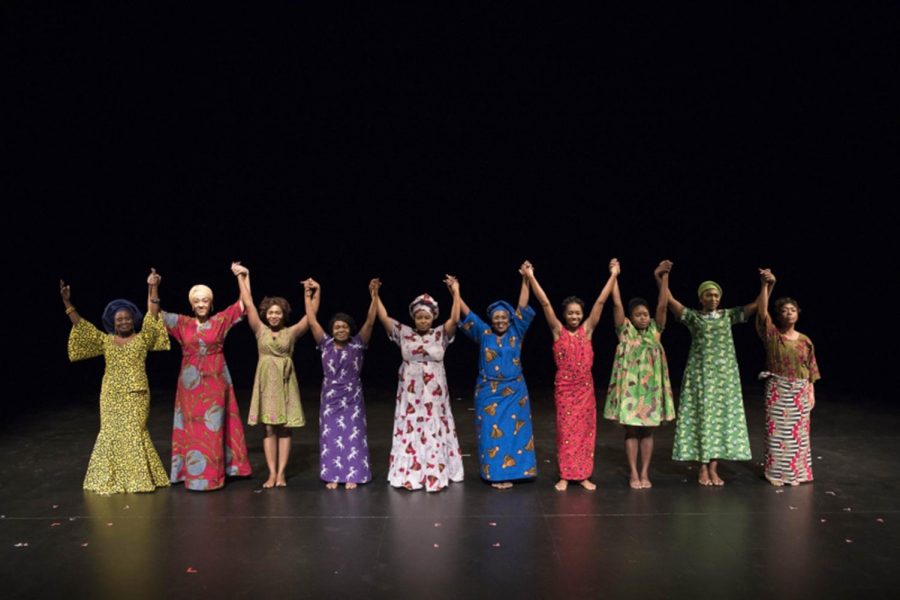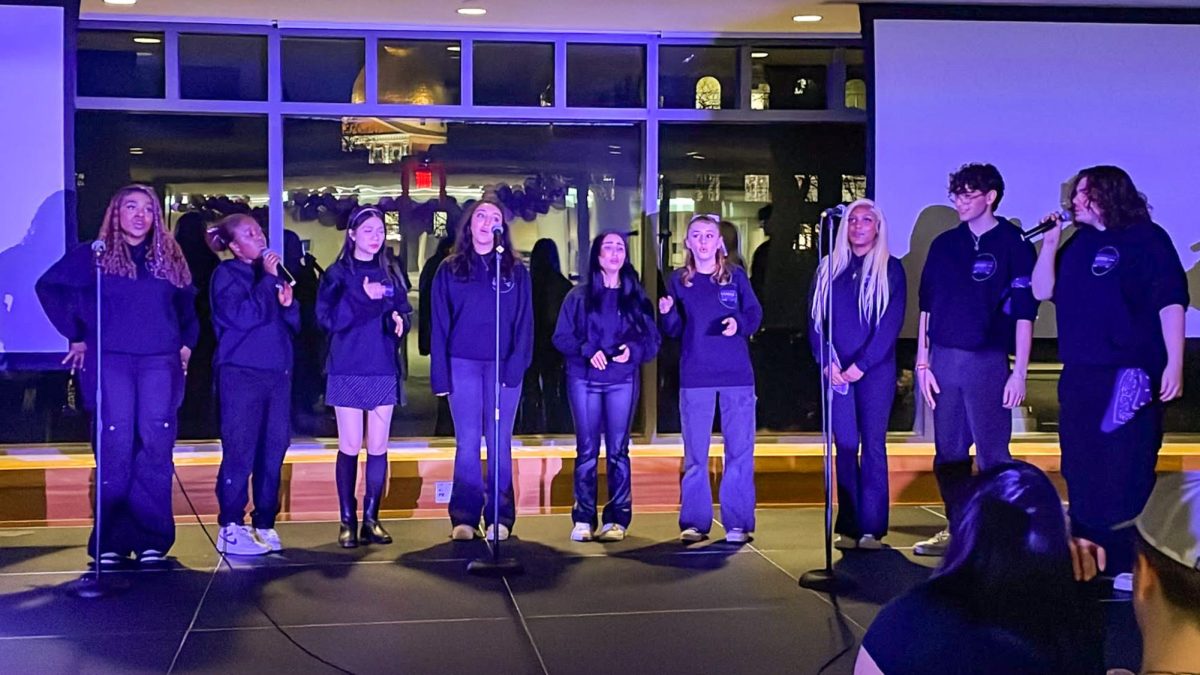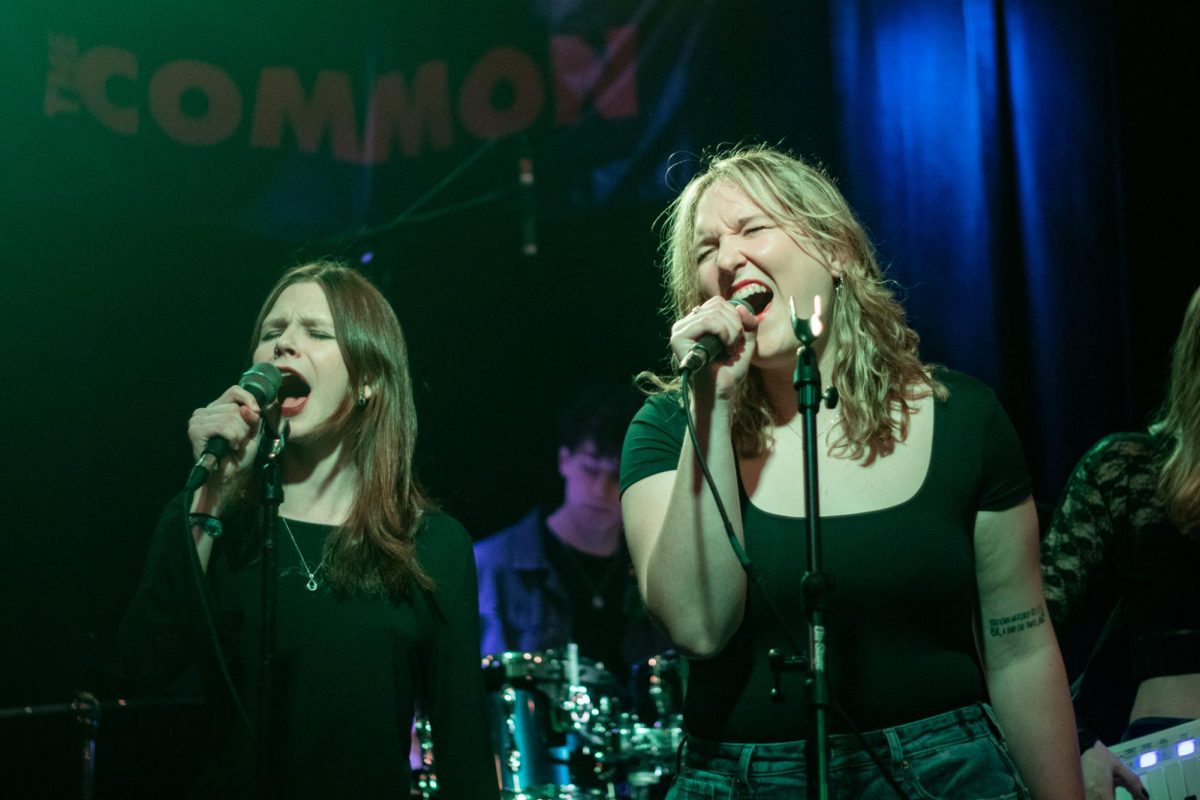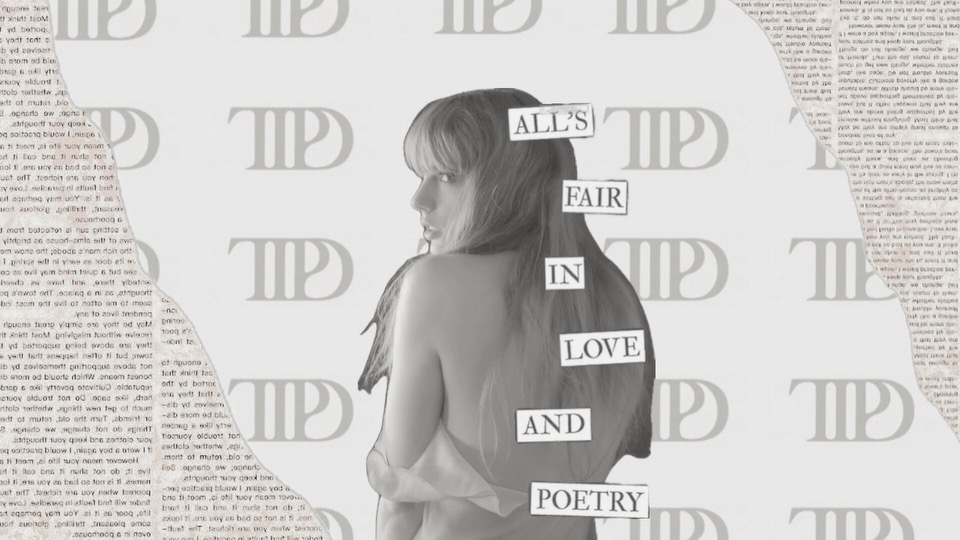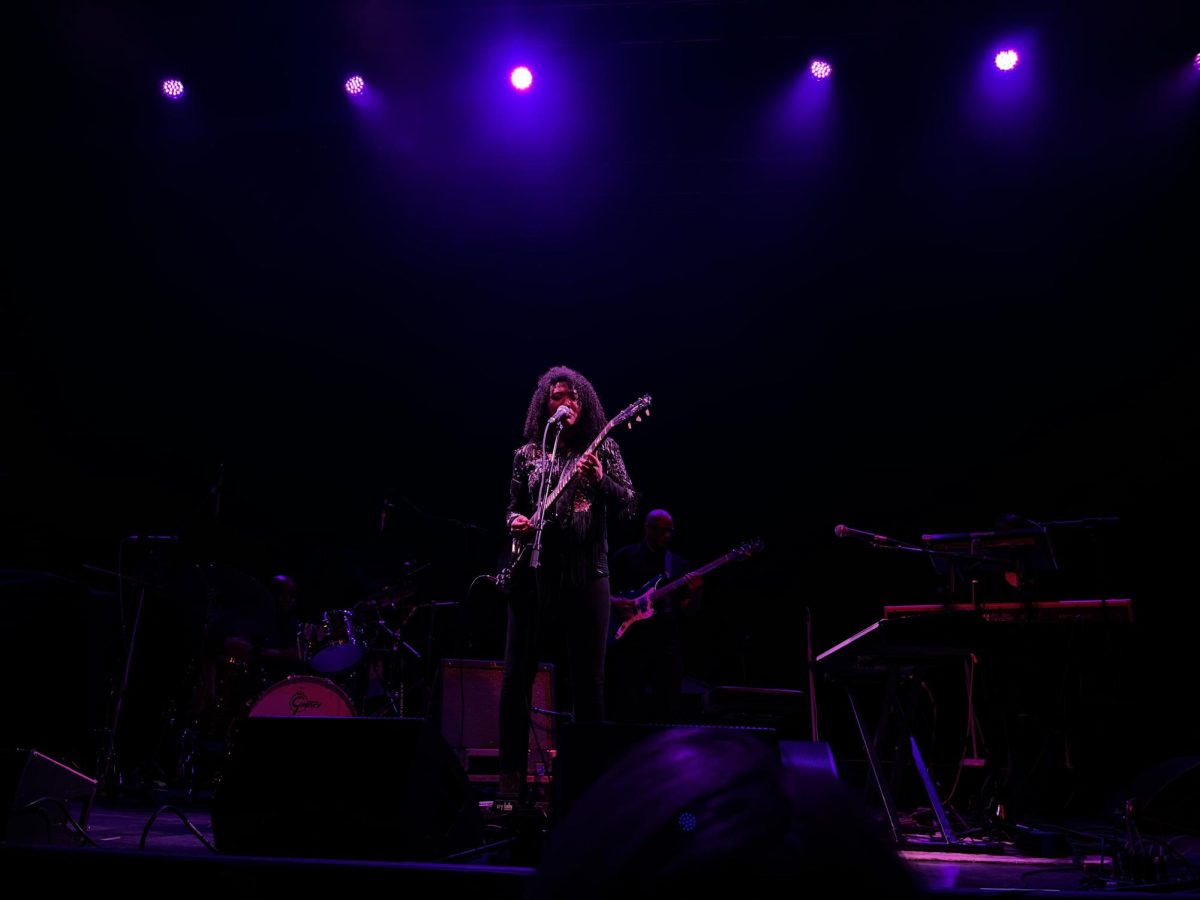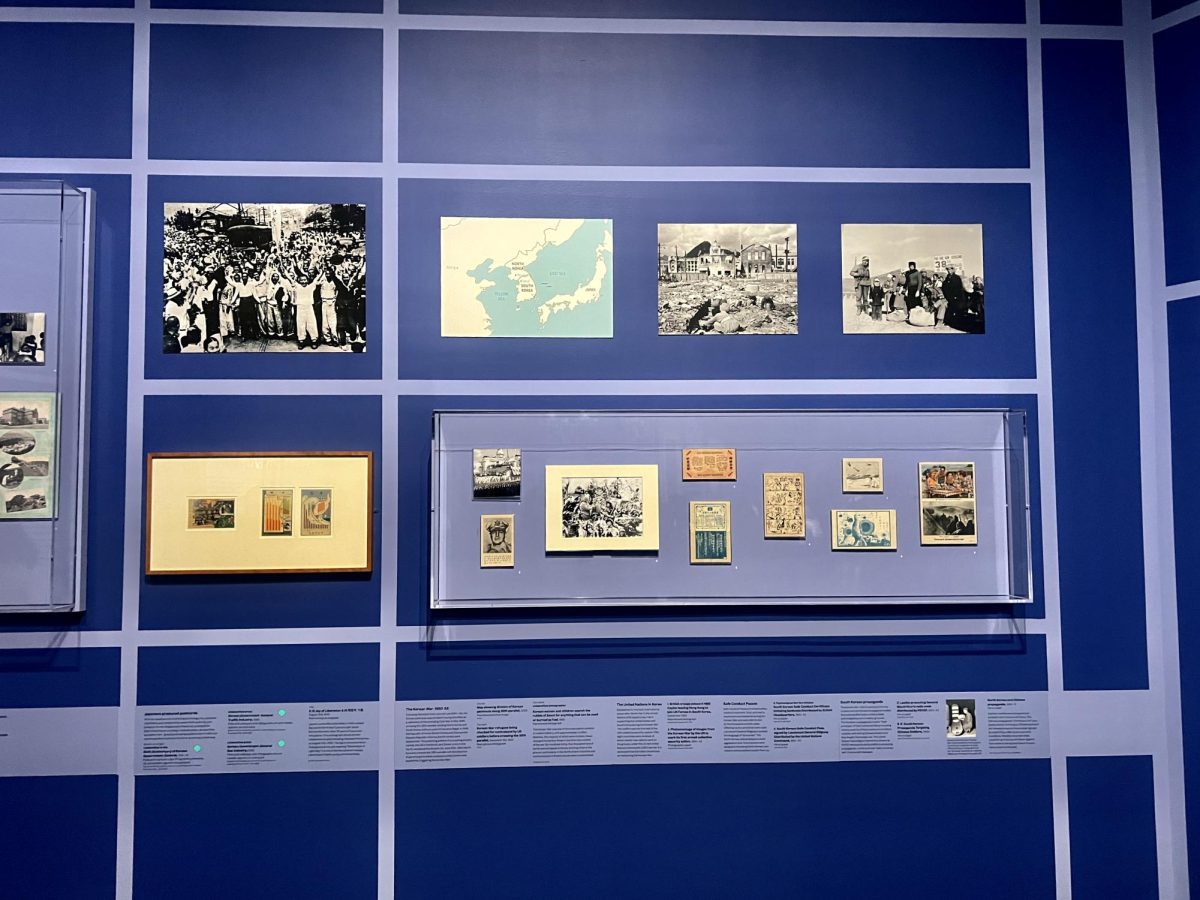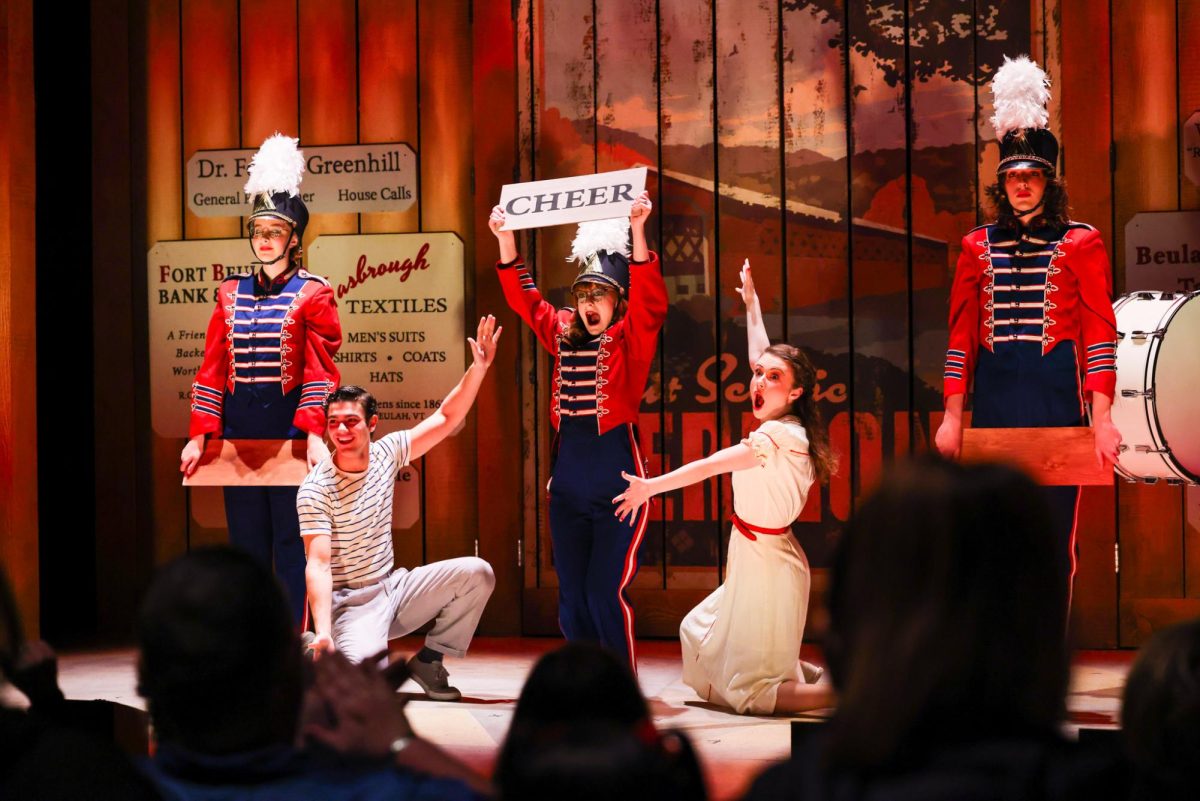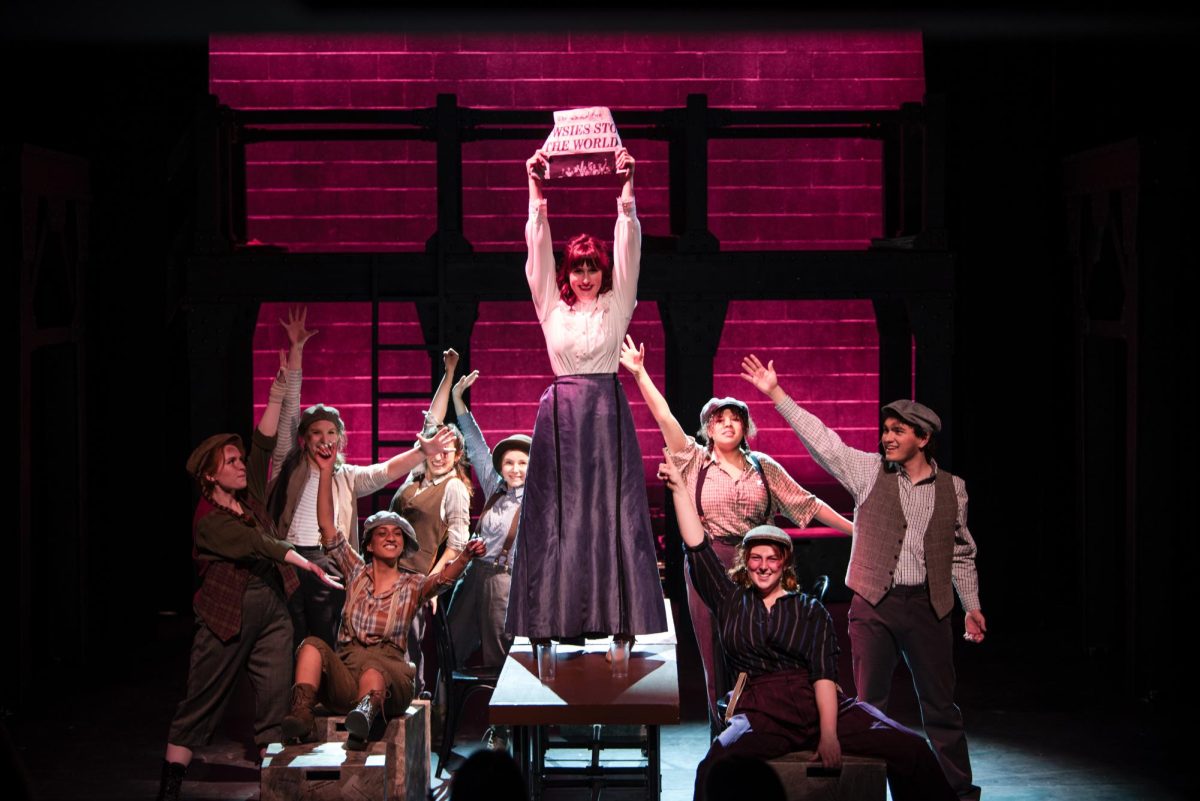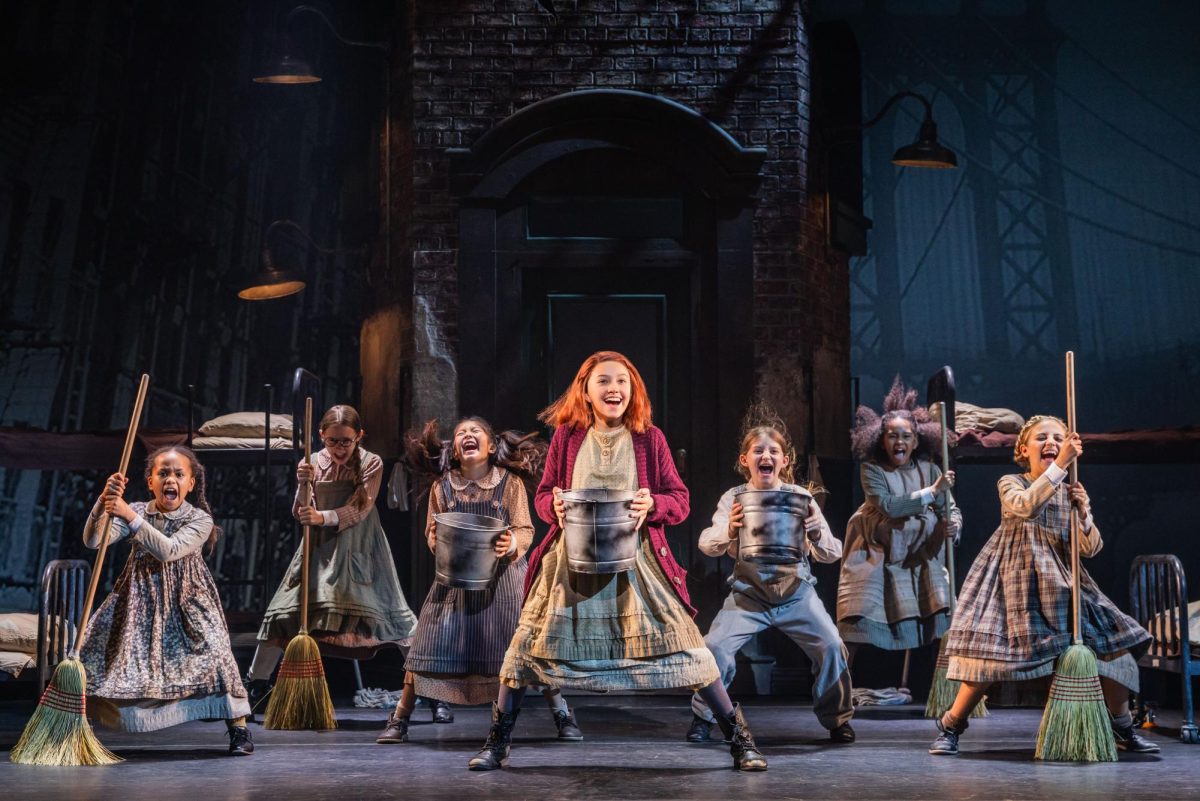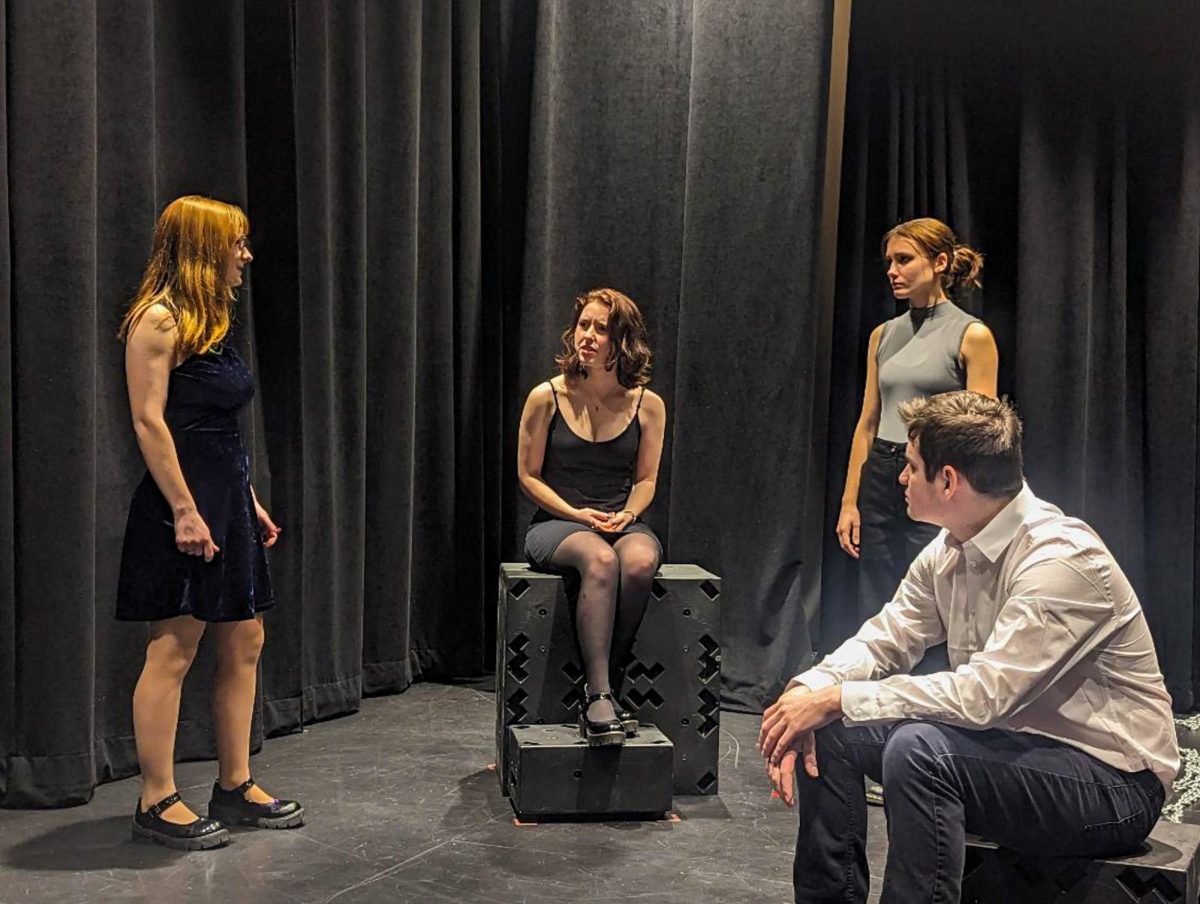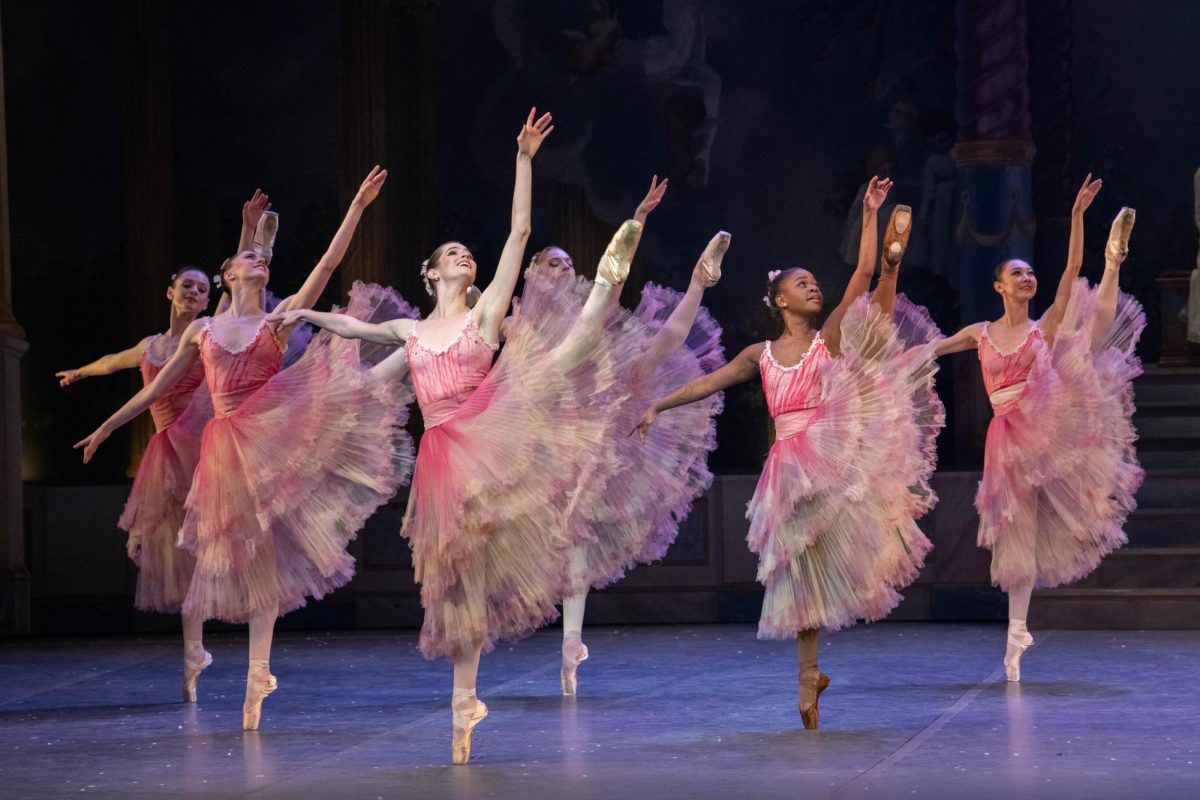Illuminated by the 10 electric candles held by 10 respective women, the small OBERON stage was brightened for the briefest of moments to start a night dedicated to shedding light on the stories of the Nigerian women who have suffered the most extreme hardships. They start off in unison, swaying their lights together as they move about the stage, only to eventually go their separate ways.
This opening, introducing the women as united is the first of many in the production “Hear Word! Naija Woman Talk True” by Ifeoma Fafunwa, illustrating the hardships Nigerian women face as they deal with oppression and discrimination in their country.
The production is composed of varying mini-scenes, each giving different perspectives on events that happen in life as a Naija woman. From heartaches to successes, the audience grew entranced as each actor gave her whole heart, passionate about the treatment of women in Nigeria.
Each scene discussed a different side to the oppression women face in Nigeria, ranging from the pressure to marry at the age of seven to losing all your possessions and rights when you become a widow later in life.
Along with providing an insight to these tragedies, the women also took part in the societal reaction to these injustices, from a mother rejecting her 12-year-old daughter due to her miscarriage which resulted in a failed marriage to a woman dancing and singing to fight off oppression with, “I reject all limitations placed on my life’s expectation.”
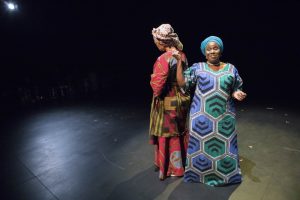
The women’s words were accompanied with a three-man band, providing traditional music with their use of drums and cymbals to create emotion and complexity which worked to solidify the message of the scenes, drawing the audience to open their eyes to this world of discrimination.
The simplicity of the set, with each scene having one prop per character at max, added to the meaning of the message, displaying how much these women actually struggle as they try to make the best out of their situations. The traditional dress helped identify the characters in their different stages of life, as simple dresses showed the age of the young girls, while the wrap dresses differed the mothers from the children.
Besides the musicians, no men appeared on stage, which added to the emphasis on female empowerment. The only mention of men in the play happened when a widower’s late husband’s family came to take her belongings that she, herself had worked for. The women who were playing the “men” were wearing dark clothing and not in the light, putting the focus on the oppression the woman was feeling as all the possessions she had worked for was taken.
The last few scenes of the play focused on the positives of female empowerment, as women took the stage totting messages of self love with, “How are you going to love others if you don’t love yourself?,” and the wonders of women enjoying the sex they partake in with their partners instead of the expectation of having sex for the enjoyment of others and not themselves.
Each member of the cast, standing in unity with each other, listed off the obsenities that each scene dealt with, bringing the audience face-to-face with the oppression Najia women deal with head-on on a daily basis. This summary, or condensing of the production, enticed great applause from the audience, erupting into multiple standing ovations for the actresses, musicians and director.
“Hear Word!: Naija Woman Talk True” will be running at the A.R.T until Feb. 11 at the Loeb Drama Center in Cambridge.


